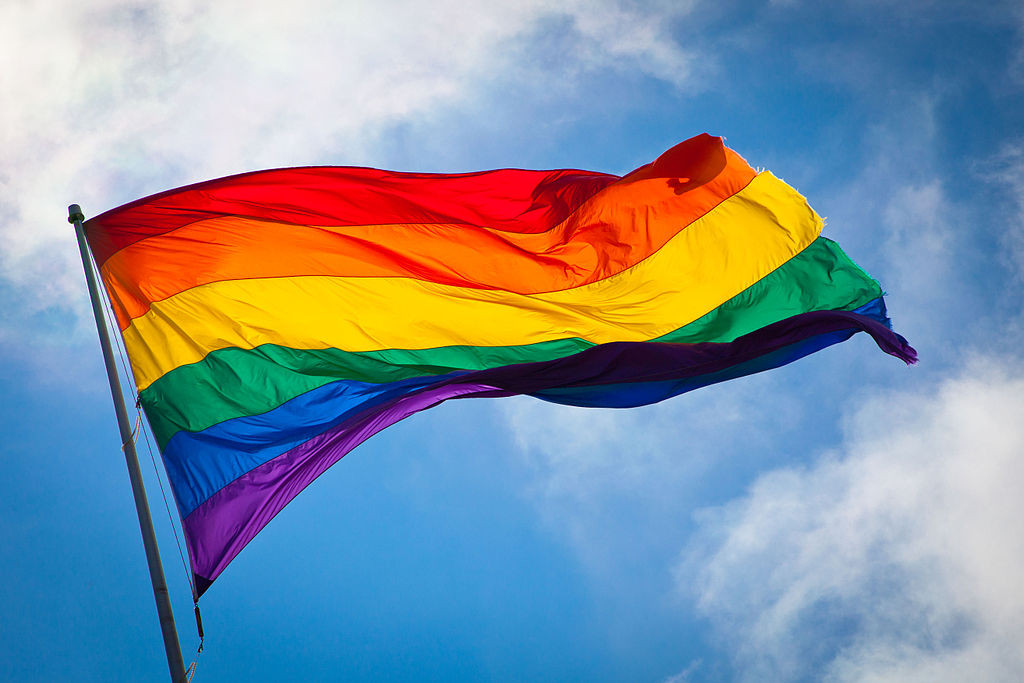The debate on LGBT rights in Poland is not a red herring. It is a question of whether gays and lesbians have the same human rights as the rest of Polish society. It’s the question that demands an answer from liberal parties – tells Liberte! Renata Kim, a Newsweek Polska editor.
The very popular among LGBT community Polish film Article 18 features a scene in which a mother of a lesbian who for a number of years has lived with her partner, who with tears in her eyes describes the moment she was watching the first gay marriage in France. She says that it was quite an experience and so, she cried like a baby. Then she asks reproachingly, why is it that she cannot cry on her own daughter’s wedding. In Poland.
The film also tells the story of a gay couple living in the UK, where since a few years back homosexual couples can – as a result of the decision of the conservative government – get married. The two Poles got married and now have two adopted children. There’s only one problem: the boys couldn’t get Polish passports because in order to file for the document one has to fill in the “mother” and “father” gaps in the form.
“The homeland of our sons refused to accept them as their citizens because they have two fathers. If a child feels safe, loved, and happy, that is what makes a home, what makes a family” – say the fathers.
Yet another protagonists of the documentary. Two young women who together have been raising a son. They left Poland because they’d wanted to get married. To live a normal life. They regret having emigrated because they miss Poland.
And now, I dare you to tell any of these people that their rights not granted in Poland are a red herring. That civil partnerships, which still have not been introduced in Poland for over 20 years of a free country, are a matter that is discussed only in order to divert attention from “really serious issues.” Like poverty, exploitation of labor, or education. Go ahead, say that to the protagonists of Article 18.
The title of the film is also telling – it refers to the 18th article of the Polish Constitution, according to which “Marriage, being a union of a man and a woman, as well as the family, motherhood and parenthood, shall be placed under the protection and care of the Republic of Poland.” The artile is often referred to by opponents of granting a legal right to formalize same-sex partnerships.
Meanwhile, the protagonists of the film could easily explain that the article actually doesn’t say that. They might have quoted a renowned Polish expert in constitutional law, Ewa Łętowska, and state that were we, hypothetically, to deal with a marriage as a union of two people of the same sex, such a marriage would simply not be included in Article 18. It would not have been protected.
Next, the same protagonists could have said, possibly with tears in their eyes, that for them it is not a red herring but the most important thing in their lives. Being able to get married, raise children, visit each other in a hospital should one of them get sick, having the right to inherit when the partner dies. Simply having the same rights as other Polish citizens. Not priviledges, simply equal rights.
They might also remind us about the fact that so far no government after 1990 thought about them in this manner: as citizens that should have full rights. And then, they might list that around the world marriage equality that enables same-sex couples to get married and raise children on the same rules as in the case of people of different sexes has been around for over 20 years. And that the majority of EU countries makes it possible to enter a same-sex marriage or partnership.
Meanwhile, Poland stubbornly refuses them this right. According to our law, same-sex couples are still treated as “the other”. And when yet another discussion (full of negative emotions and prejudices, and filled with lack of knowledge) on the issue takes place, some Polish politicians are quick to show disregard to gays, lesbians, and transsexual people from the parliamentary rostrum thus demonstrating their disgust with the issue as such.
What is even worse is that even their more enlightened liberal colleagues do not take a clear stance to defend the LGBT community, to fight for their rights. And there is a number of questions that should be directed at liberal parties. For example: how is it possible that for over 25 years, taking care of citizens was limited to building magnificent ring roads and highways and at the same time kept forgetting about citizens’ civic rights? Or in broader terms: human rights? After all, the discussion abot the rights of LGBT community is not a red herring. It’s a dicussion about whether or not they are eligible for human rights just like the rest of Poles. And if we agree that it is the case (because how else could it be?), we have to immediatly consider how should these rights be secured in the democratic Republic of Poland.
And that is the question that demands an honest answer from the liberal parties. Their LGBT voters are awaiting the answer impatiently. Together with all others who believe that a country that omits a group of its citizens is neither strong, nor safe, nor democratic.
The article was originally published in Polish at: http://liberte.pl/prawa-gejow-i-lesbijek-to-nie-temat-zastepczy/



